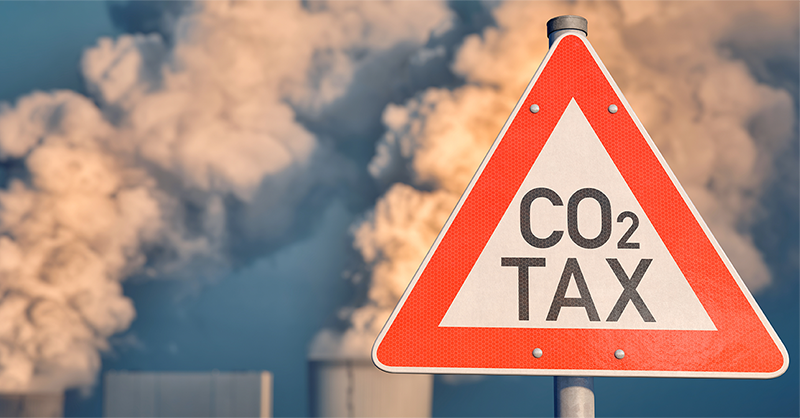EU sticking to carbon border levy plan as IMF, WTO call for global carbon price
02 November 2021 12:59

The EU is committed to introducing a carbon border levy for polluting goods, Ursula von der Leyen has said, in the face of calls today from the heads of the International Monetary Fund and World Trade Organization for the different approach of an "international carbon price floor."
Speaking at an event* as part of the UN climate summit in Glasgow known as COP26, the European Commission president defended the EU's plan to tax imports of cement, iron, steel, aluminum, fertilizers and electricity at the bloc’s borders.
A global carbon price floor is unlikely to lead to a sufficiently high price in every exporting market, and so the EU border measure is still necessary, Von der Leyen said.
“If we would live in a perfect world, I would love to have a global price on carbon for everybody and everything globally: That would be perfect,” she said. Nevertheless, the EU “will now introduce slowly but surely a Carbon Border Adjustment Mechanism that says if you come with a dirty product to our market, you have to pay a price as if you were in the EU’s Emissions Trading System.”
The commission put forward a legislative proposal for the CBAM in July, and it is now being debated in the European Parliament and among the EU’s 27 national governments.
Global price
Earlier today, IMF chairwoman Kristalina Georgieva urged delegates in Glasgow to agree on an international carbon price floor that would take into account each country’s level of development, and would allow the comparison of different types of carbon pricing such as emissions trading, taxes and regulatory measures.
“If we don’t go there, there will have to be border adjustment taxes … and that would be a huge headache for the WTO,” Georgieva said.
WTO chief Ngozi Okonjo-Iweala confirmed that the EU plans have prompted concerns, especially from developing countries, with some seeing the measure as “disguised protectionism” and an obstacle to international trade.
She also stressed that the current “fragmentation” in carbon pricing regimes around the world is causing difficulties to businesses and might result in higher prices for consumers; she therefore expressed her support for a global comparable price.
“We do have to have a global carbon price, and I like the IMF approach,” Okonjo-Iweala said.
She also called on global leaders to task international institutions such as the IMF, the OECD, the WTO and the World Bank to come up with “common approaches” to put a price on pollution globally.
As part of the UN talks running until Nov. 12, negotiators will deal with the matter of global cooperation on carbon pricing as part of their discussions on the rulebook of the 2015 Paris climate accord.
*A price on carbon pollution to achieve net zero, Carbon Pricing Leadership Coalition, Canada, UN Climate Change Pavilion, online, Nov. 2, 2021.
Related Articles
No results found
